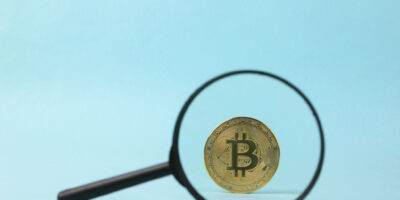Blockchain: Food that Regulates Itself?
People increasingly want to know where their food comes from. Imagine if any consumer with a cell phone could scan a barcode and have a detailed, accurate, unalterable account of the path fresh meat or produce took from a farm to the grocery store. A new startup called Food Blockchain XYZ is trying to implement just that vision. The new business provides a notable example of uses for blockchain technology beyond digital currencies such as Bitcoin and Ethereum, but also poses similar questions about the future of centralized regulation.
The company website offers some basic details of the technology, which involves sensors at stops along the supply chain recording permanent information in a blockchain that can be publicly viewed. The idea is that the system will reward firms along the chain who follow best practices and are transparent, as illustrated in this passage from the website:
- Farmers who follow good farming practices will be financially rewarded. Our system will record data about use of pesticides, fertilisers and GMOs as well as results of composition analysis of food.
- Producers can assure safety and recipe compliance as well as conformity to healthy nutrition standards of their food products. They can also create unique ID tags to monitor the lifecycle of the finished product and prevent counterfeiting.
- Distributors will be financially incentivised to adopt good delivery practices, ensuring proper storage conditions (temperature, humidity, pressure, oxygen amount)
- Retailers can be confident that the food products they receive have been duly sourced, processed and stored before reaching them. They select quality requirements for their orders and set up the purchase contract. Sensor Systems and Smart Contracts ensure conditions are respected.
- Consumers can verify all the information about the food they are buying, using a smartphone app. A mother buying a can of baby food can see the entire history of the can in her hand, all the way from the farm it came from to the shop. This level of transparency and verifiability is unprecedented.
So what happens to government regulation of food products when retailers and consumers can access accurate information without even the push of a button? Like other blockchain applications, the technology might decrease the need for a regulator. If consumers want produce without pesticides, they could verify the produce themselves and vote with their purchases. However, there would still need to be a way of ensuring that produce labeled pesticide-free actually met that standard. Furthermore, easier monitoring of farms and distributors could aid tighter government control. As with digital currencies, blockchain technology can drastically reduce the role of centralized regulation, but this outcome is neither straightforward nor automatic.











